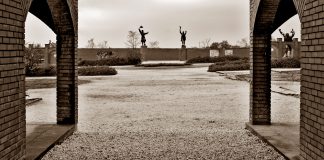Florentin Lehaci
The question that rattles even the faith of clergymen
"Where is God?" is the question that arises in the face of inexplicable tragedy. When even a high-ranking clergyman is plagued by this question, the natural response is to conclude that something does not add up.
The Christian pursuit of happiness
Humanity has not only reimagined God but has also redefined its expectations. Among Christians, many believe happiness is a promise made by God Himself. But what if this pursuit is nothing more than a chase after illusions?
Biography of a dilemma
"If anyone, then, knows the good they ought to do and doesn’t do it, it is sin for them" (James 4:17).
Are we wired for altruism?
She donated a kidney to a stranger without expecting anything in return. This is the story of a graphic artist whose sole motivation was altruism. Such cases have led researchers to question whether altruism might be an inherent trait in the human brain.
“Believe and do not inquire”: the motto of a convenient faith
Many who are familiar with leafing through the pages of the Bible might claim that it’s enough to simply read it, without delving into deeper study. On the other hand, there are Christians who actively engage in a thorough examination of the sacred text, though often without a structured approach. Others choose not to read it at all, despite their connection to religious...
The wounds of believers that hurt the churches
“I’ve left the church, but not my faith.” This phrase has become increasingly common in today’s secularised society. Millennials are often the first to express this sentiment, but they are not the only ones. A letter sent to a church that someone has abandoned is both poignant and powerful, serving as a heartfelt plea for churches everywhere to take this message seriously.
Life lessons from the ants
Rudyard Kipling referred to ants in his famous poem, recommending these fragile creatures as a kind of didactic exhibit. What can one learn from ant colonies?
The dictatorship of tolerance
"Borg creatures. A highly advanced race of predators. They have no conscience. No ethic. Chances are, it has already infected your community, your schools, your church—even your children. This real-life threat is called 'the new tolerance', a simple phrase that describes a complex modern doctrine" (Josh McDowell).
The fascination of eternal freedom in a communist regime
The biggest surprise of 1989 was the speed with which the communist regimes in Europe collapsed. Their collapse occurred as quickly as their establishment. Two personalities played an undeniable role in undermining a communist regime that seemed to be eternal.




















